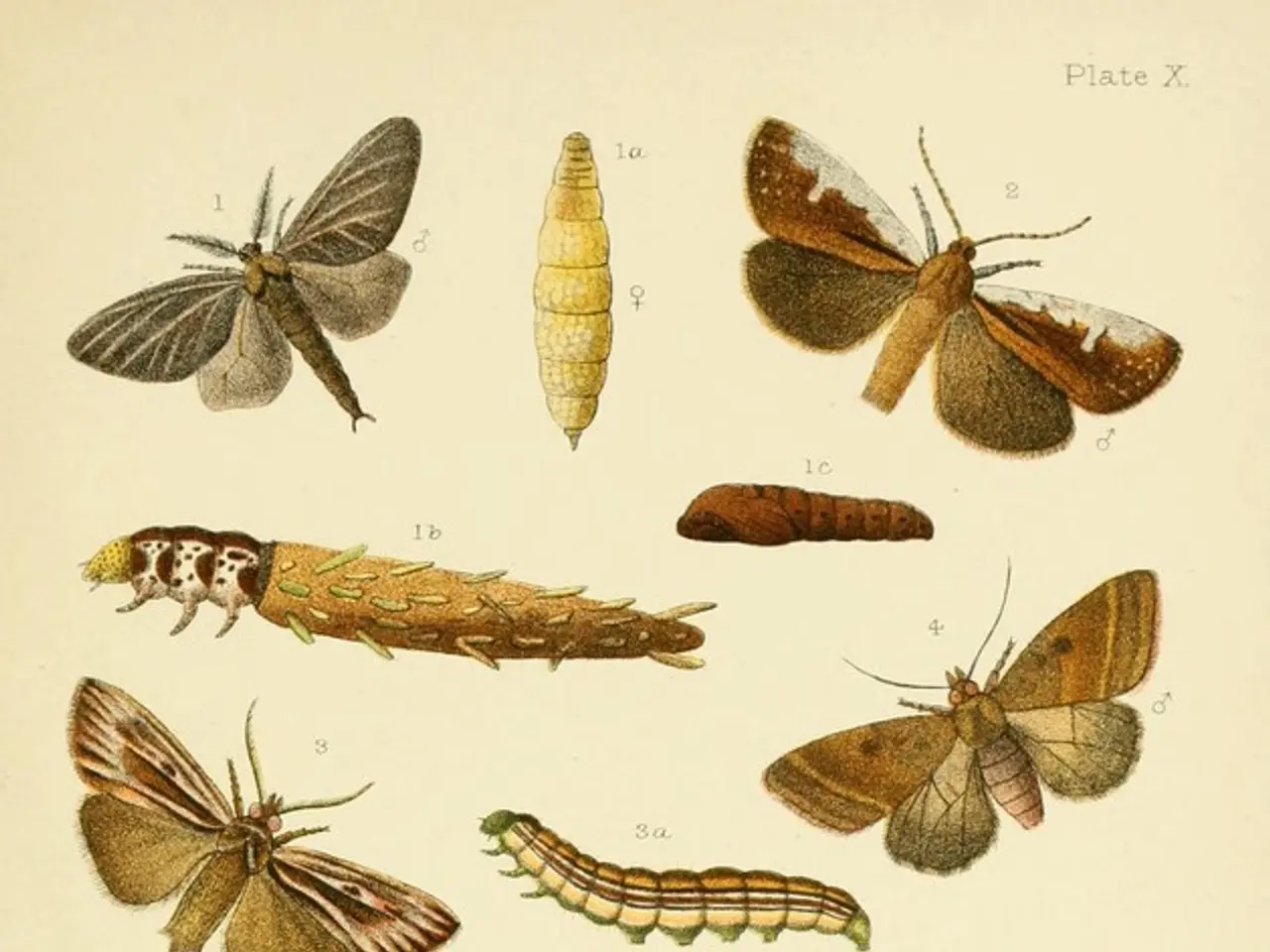First observed ticks of the year recorded at hospital in Latvia, 2025
In 2024, Eastern Hospital reported an increase in cases of tick-borne diseases, with 67 patients treated for tick-borne encephalitis and 32 for Lyme disease. Six cases of ehrlichiosis were also reported. As the warmer months approach, it is crucial to be aware of the symptoms and prevention methods for these diseases.
Tick-borne encephalitis (TBE)
TBE often goes unnoticed as it is asymptomatic in up to 90% of cases. However, when symptoms do occur, they typically start about 1-2 weeks after a tick bite. The disease has a biphasic course, with an initial phase that resembles flu symptoms (fever, headache, fatigue) followed by a second phase with neurological symptoms, including meningoencephalitis. This can cause paralysis, difficulties with walking and coordination, head pain, fatigue, and cognitive problems such as memory and thinking difficulties. Approximately one-third of symptomatic cases develop serious neurological illness.
Lyme disease
Lyme disease is characterised by early symptoms such as fever, headache, extreme tiredness, muscle aches, swollen lymph nodes, and a characteristic rash (erythema migrans) that often appears as a "bull's-eye" around the bite. If left untreated, Lyme disease can cause serious complications affecting the joints, heart, and nervous system.
Ehrlichiosis
Ehrlichiosis symptoms resemble a flu-like illness, including fever, headache, muscle aches, fatigue, and sometimes rash. Severe cases can lead to organ failure or neurological symptoms if untreated.
Prevention
The best way to prevent tick-borne diseases is to avoid tick bites. This can be achieved by staying on clear trails and avoiding walking through high grass, bushy or wooded areas where ticks live. Wearing long sleeves and long trousers, tucking trousers into socks, and wearing light-colored clothing to spot ticks easily is also advisable. Using insect repellents effective against ticks on exposed skin and clothes is another important measure. After outdoor activities, it is essential to check your body, children, and pets thoroughly for ticks, and remove found ticks promptly and correctly.
For those planning outdoor activities in TBE-endemic areas, mostly parts of Europe and Asia, a vaccination called Ticovac is available and recommended. The vaccine schedule consists of a first dose at least one month before exposure, a second dose 1-3 months later for about 90% immunity, and a third dose 5-12 months after that to extend protection for 3 years. Children aged 1-15 can receive Ticovac Junior.
Additional measures for people working outdoors, such as farmers and foresters, include wearing gloves and protective clothing, plus frequent tick checks. Avoiding unpasteurized dairy products in endemic areas can also reduce the risk of TBE transmission.
| Disease | Symptoms | Prevention | Vaccine Available | |-----------------------|--------------------------------------------|---------------------------------------------|------------------------| | Tick-borne encephalitis (TBE) | Mostly asymptomatic; flu-like symptoms; neurological problems in severe cases | Avoid tick bites; use repellents; wear protective clothing; check for ticks; vaccination (Ticovac) | Yes (Ticovac, Ticovac Junior) | | Lyme disease | Fever, headache, muscle aches, rash (bull's-eye), swollen lymph nodes | Avoid tick bites; repellents; protective clothing; tick checks | No widely used vaccine currently | | Ehrlichiosis | Fever, headache, muscle aches, fatigue, sometimes rash | Avoid tick bites; repellents; protective clothing; tick checks | No vaccine |
This comprehensive prevention approach, especially vaccination for TBE and protective measures against tick bites, significantly reduces the risk of acquiring these potentially serious diseases. Going outdoors or working in a heated greenhouse during winter and early spring requires vigilance against ticks.
It is important to check for ticks when returning home after outdoor activities and to seek immediate medical attention if symptoms such as headache, fever, body aches, and increased tiredness are present. Doctors at the Eastern Hospital advise caution against tick-borne diseases, including tick-borne encephalitis and Lyme disease.
In 2024, a total of 1,169 ticks were removed from patients at the Eastern Hospital. Although no ticks tested for tick-borne encephalitis by the LIC laboratory in 2024 were infected, 31% of the ticks tested for Lyme disease were found to be infected. A total of 298 ticks were tested for tick-borne diseases by the LIC laboratory in 2024 (141 for tick-borne encephalitis and 151 for Lyme disease).
RAKUS emphasizes the importance of vaccination against tick-borne encephalitis, and vaccination can be done at any time of the year. Vaccination against tick-borne encephalitis can provide protection not only during the summer months but also during the winter and early spring when outdoor activities may increase the risk of tick exposure.
- To ensure awareness about tick-borne diseases, such as TBE, Lyme disease, and ehrlichiosis, various media platforms can focus on highlighting their symptoms, prevention methods, and available vaccines.
- In the realm of science and medical-conditions, an increased focus on chronic diseases like TBE and Lyme disease is crucial, considering their potential neurological complications, including meningoencephalitis and paralysis.
- As part of a comprehensive health-and-wellness routine, paying attention to fitness-and-exercise and mental-health, one should also be aware of the risks associated with tick-borne diseases and take necessary prevention measures.
- In the search for potential treatments and preventive measures for neurological disorders, researchers are exploring the therapeutic potential of CBD in managing symptoms of chronic diseases like TBE and Lyme disease.




